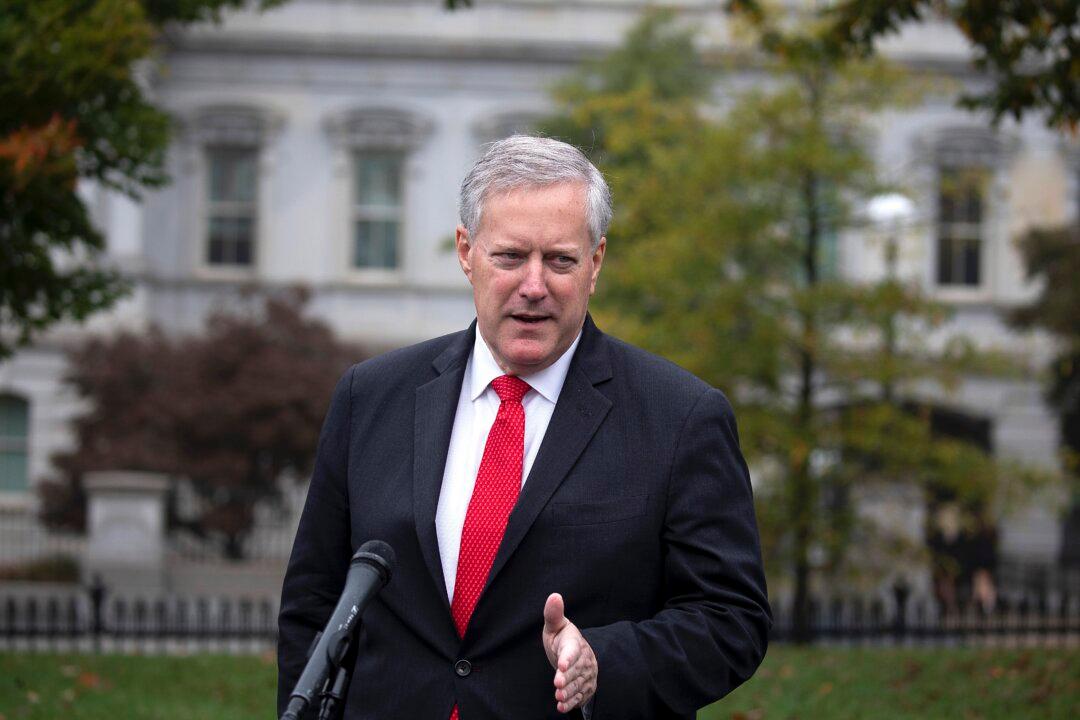Mark Meadows, former chief of staff for President Donald Trump, is asking to move charges against him in a Georgia case over alleged 2020 election interference to federal court, where his lawyer says they plan to ask a judge they be dismissed.
“Mr. Meadows is entitled to remove this action to federal court because the charges against him plausibly give rise to a federal defense based on his role at all relevant times as the White House Chief of Staff to the President of the United States,” an attorney for Mr. Meadows wrote in a filing Tuesday.





